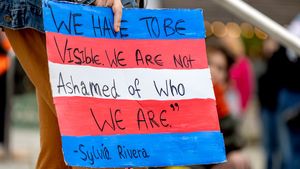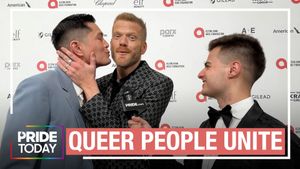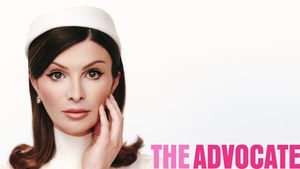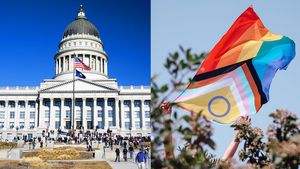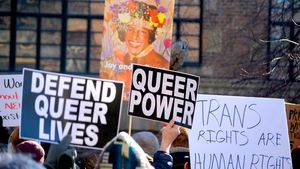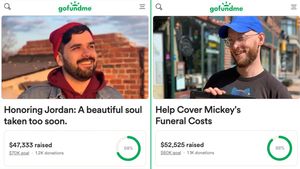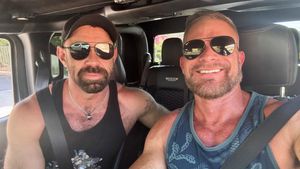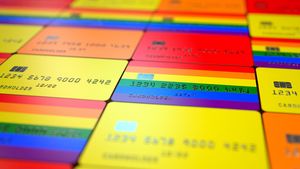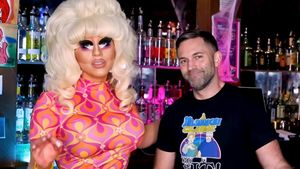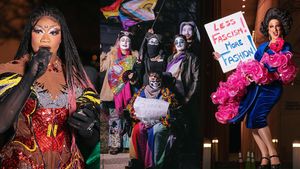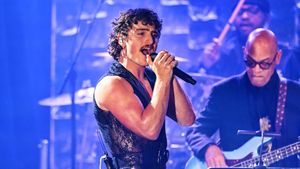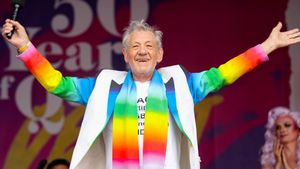Homophobia is part and parcel of male professional sports. Gay epithets are so pervasive among players that they are sadly totally unaware of the weight and meaning of the terms.
“It didn’t have significance to the way that’s being interpreted right now,” Toronto Blue Jays shortstop Yunel Escobar, who sported the words “Tu ere Maricon” in eyeliner under his eyes during a recent game, stated through a Spanish interpreter. “That’s not the significance that I put into it. That’s a word used often within teams. It’s a word without meaning, the way we use it.”
With the phrase "TU ERE MARICON" (sic) written in his eye-black, the phrase can be loosely translated as "You are a f****t" or "You're a weak girl."
Escobar, 29, is now suspended for three games for wearing eye-black displaying the homophobic slur during a game against the Boston Red Sox on September 15th.
Escobar, a native of Cuba, contests that the phrase is taken out of contest because, used in his culture, it is not intended to be offensive; it's merely used as banter in their friendly repartee.
“I have friends who are gay. The person who decorates my house is gay, the person who cuts my hair is gay. I have various friends who are gay. Honestly, they haven’t felt as offended about this. They have just a different understanding in the Latin community of this word,” Escobar stated defending himself to the media.
Language is a representation of culture and if a culture is unaware of or anesthetized to the destructive use of homophobic epithets it re-inscribes and perpetuates ideas and assumptions about race, gender identity and sexual orientation. Consequently, these ideas and assumptions are transmitted from field houses to playing courts. And unfortunately, even accepted or explained away among some scholars.
"It is derogatory, but it's not necessarily homophobic," said Maria Cristina Cuervo, a professor of Spanish at the University of Toronto.
While Professor Cuervo agrees that the phrase is insulting, she doesn’t grasp, however, that if the phrase "TU ERE MARICON" goes unchecked or is not challenged it allows people within their culture to become unconscious and numb to the use and abuse of the power and currency of this homophobic epithet—and the power it still has to thwart the daily struggles of many of us to ameliorate LGBTQ relations.
Part of the problem contributing to the unconscious insensitivity to the phrase is the cultural construction of masculinity. Hyper-masculinity in professional male sports cultures not only exploits women, but also unabashedly denigrates and goes after lesbian, gay, bisexual, transgender and queer (LGBTQ) people. And it has deleterious effects on all children—straight and gay.
For example, sports programs are a particular challenge when attempting to make schools, playgrounds and locker rooms safe of our LGBTQ children.
LGBTQ athletes must constantly monitor how they are being perceived by teammates, coaches, endorsers and the media in order to avoid suspicion. They are expected to maintain a public silence and decorum so that their identity does not tarnish the rest of the team.
Sports can also provide innumerable opportunities to teach valuable life lessons and can be a powerful influence in addressing myriad social issues. And eliminating homophobia can be one of them.
more on next page...
\\\
(continued)
The aggressive posturing and repudiation of LGBTQ people with gay slurs allows homophobic athletes to feel safe in the locker room by maintaining the myth that all the guys gathered on their team are heterosexual, and sexual attraction among them just does not exist.
This myth allows men like Escobar to enjoy the homo-social setting of the male locker room that creates male-bonding—and the physical and emotional intimacy that goes on among them displayed as slaps on the buttocks, hugging and kissing on the cheeks in a homoerotic context—while such behavior outside of the locker would be easily labeled as gay.
In his book, Man in the Middle, John Amaechi, former NBAer who came out in 2007 after retirement, states, “The NBA locker room was the most flamboyant place I’ve ever been. Guys flaunted their perfect bodies. They bragged about sexual exploits. They primped in front of the mirror, applying cologne and hair gel by the bucketful. They tried on each other’s $10,000 suits, admired each other’s rings and necklaces. It was an intense camaraderie that felt completely natural to them.”
Today’s society awards celebrity status to professional athletes, and their popularity has reached unprecedented levels. Their influence goes far beyond the court and field.
So, do these athletes, like Escobar, who's from a different sports culture, have a responsibility to American fans?
Racism was addressed through sports when Jackie Robinson became the first black Major League Baseball player in 1947, and in 2007’s landmark Super Bowl with its two African American coaches. And so, too, homophobia can be addressed through sports.
Escobar’s vitriol, sadly, hurts more than just his team and career endorsements. It hurts the hundreds of young LGBTQ sports enthusiasts and athletes around the world who revere him.
Follow SheWired on Facebook.
Follow SheWired on Twitter.












































